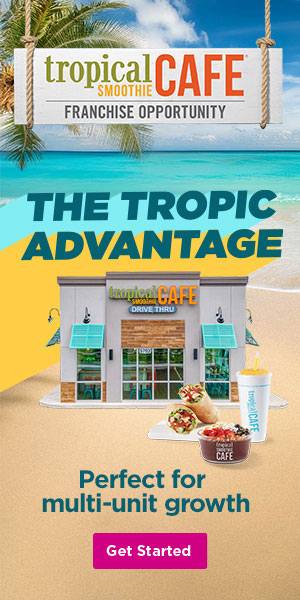Start spreading the news, you may just want to be a part of New York, New York. The Big Apple heads up the list of the top 20 cities in the U.S. for franchising, according to a new study by Franchise Update and FRANdata. This past summer, executives from Franchise Update commissioned researchers at FRANdata, an organization that collects extensive franchise industry information, to tabulate the rankings. FRANdata analysts drew upon more than 250,000 records of franchise locations out of its proprietary database to calculate the results. "We analyzed Direct Market Areas (DMAs) as outlined by Nielsen. We matched zip codes to DMAs and calculated the number of franchises within those DMAs," explained FRANdata data research analyst Brad Morick, who was responsible for the project. The use of the DMAs helped standardize the analysis and interpretation of the rankings. "To my knowledge, no one else has ever done a study like ours," continued Morick. "Since we collect UFOCs from franchises across the country, we know all of their locations and could easily do a cross match. "
The rankings not only list the cities with the highest concentrations of franchises, but also tabulated the types of franchise businesses into 32 categories (fast food, lodging, etc). The top 20 cities are as follows:
New York City
Los Angeles
Chicago
Washington
Philadelphia
Atlanta
San Francisco/Oakland/San Jose
Minneapolis/St. Paul
Dallas/Fort Worth
Boston
Seattle/Tacoma
Denver
Phoenix
Detroit
Houston
Tampa/St. Petersburg
Miami/Ft. Lauderdale
Cleveland/Akron
St. Louis
Sacramento/Stockton/ Modesto
WHAT MAKES A GOOD FRANCHISING CITY?
A cursory review of this list reveals generally highly populated cities, often with diverse groups of people. Logically, one might expect a high percentage of franchising in many of these cities mainly because of large concentrations of consumers. Indeed, many in the industry agree there are some strong franchising cities on this list, but there are many different reasons these cities are good franchising cities and obviously not every city on the list is strong for all franchise concepts. As the study's author points out, "If you are in the hotel and lodging business, you're going to probably want to be in cities known for tourism and beautiful weather, like Miami." Furthermore, Morick found it interesting for example, that the Minneapolis/St. Paul area is not as heavily populated as some of the other top cities on the list, but nonetheless it has a high concentration of franchises. "We could draw a possible conclusion that there may be fewer folks here, but more of them tend to make purchases from franchise-type stores. "
Ultimately, there are myriad of reasons that make cities good, or not so good, for franchising-economic growth, population growth, small business-friendly, regional demographics, government/ civic incentives, weather/climate, tourism, etc. All can play a significant role in helping a franchise organization determine where to be.
"When we do research for clients, we look at a number of issues that will help determine market potential for franchises," explains Blair Zucker, national director of sales for ESRI Business Information Solutions, a demographic research company based in Redlands, CA. "Obviously, you want to know about basic demographics in an area and you want to know about things like the buying power and income spending habits of people who live there-and ultimately can your product or service fill a need here? For example, if you sell donuts, you want to know what percentage of the population in a given area buys donuts. How often, and what do they typically spend on donuts?" Zucker says there are a number of factors that help organizations decide where to expand or increase their presence.
FOLLOW THE PACK
One school of thought based on a ranking such as the Franchise UPDATE/ FRANdata top 20 list says franchisors should "follow the pack." If there's a high concentration of people and a high concentration of franchises in a particular area, like New York or Los Angeles, the reasoning goes, you can't afford not to be in the market. That is, there's a reason there's so much franchising activity in that city, because franchising works there. It's a simplistic approach that has pros and cons.
"In one sense, you generally want to be where your competitors are," says ESRI's Zucker. Simple marketplace economics dictate that. "Also, you typically have diverse population groups in larger metropolitan cities like many on this list and that can also be beneficial to some franchises," she says. There's something for everyone in these cities.
But Tom Spencer, a vice president with Claritas, Inc., a market research organization based in San Diego, says, "Sure big markets can have big opportunities, but is everybody in that market for the same customer? Are they there for the same reasons? You can't just simply look at quantity, because quality and value are also very important parts of the equation."
ESRI's Zucker notes Spencer's point of view and adds, "If your market research indicates your concept would do well in New York City, you might think a little outside the box and open a store in nearby Trenton, New Jersey. There could be some great economies of scale for that kind of approach. "
Spencer concurs that smart franchise organizations might define cities and markets even further, especially in cities that are diverse and/or have widely dispersed populations like New York City or Los Angeles. "You may identify that you desire a presence in New York, but where in New York? Which sections of the city? That's part of the key. "
Both Zucker and Spencer agree that all franchise organizations need to do their homework about any city or market where they might be looking to enter or expand. They recommend a thorough examination of the franchise concept's potential, the competition's presence, and consumer spending habits, as well as a litany of other areas of research that can identify potential strong markets and a good match for a particular franchise concept.
FRANCHISE PERSPECTIVE
"Like most franchise organizations, we have created a matrix that defines exactly the kinds of markets that we are looking for based on what kinds of demographics have worked for us in the past," says Russ Reynolds, CEO of Heartland, WI-based Batteries Plus. The group has 220 locations nationwide. "Of the top 20 cities on this list, I'd say we're strong in around 50 percent of them. And we're expanding into most of the other cities."
Reynolds thinks the top 20 list is fairly representative of solid cities for franchising and noted that Atlanta, Seattle, and cities in Florida always seem to be good places for small businesses to be in. Those cities are all top cities for Batteries Plus' growth plans.
Atlanta and Seattle are also good cities for Orange, CA-based Budget Blinds, according to president and CEO Chad Hallock. Budget Blinds currently has 490 franchises in 43 states, and is aggressively going into the Atlanta, Seattle/ Tacoma, Minneapolis/St. Paul, and St. Louis markets, according to Hallock. He also added Chicago, Boston, Tampa and Denver as hot expansion markets for the company. "We actually have a number of franchisees in New York City, but big cities are not the first point of attack for us because we typically are looking for the smaller or medium-size markets around those big cities," he says.
Budget Blinds uses a "donut effect" strategy of surrounding bigger cities, such as Atlanta and Seattle, by opening franchises in the suburbs and outlying areas. "There's some economies of scale with the cost of real estate, there's often less competition, and better advertising exposure in these smaller markets," he says. Ultimately, after Budget Blinds builds a presence in the surrounding area, they "spill over" into the larger market. "We're looking for exposure in areas surrounding major markets, and that naturally leads to awareness and eventually growth into the major market."
Batteries Plus' Reynolds agrees and says that momentum and recognition breed growth. "Once franchising gets started in a city or area, it just snowballs."
Reynolds noted the list's inclusion of Cleveland/Akron. "We have a multi-unit franchisee in the Columbus market, where we are basically penetrated, and in Dayton. But we are not in Cleveland or Cincinnati and those are two markets we are actively looking to develop."
Reynolds highlights another reason he thinks some cities are good franchising cities. "Places like Denver, Atlanta, and Minneapolis, where you have strong franchise support networks from organizations like the IFA or Franchise UPDATE, tend to be thriving franchise spots," he notes. "Anyplace where there is a lot of networking going on-support groups, conferences, and peer groups-these kinds of things build strong franchising-friendly environments."
Strong franchisees build strong franchises, according to Reynolds. He says although it's important for cities' demographics to meet Batteries Plus' matrix, it's also important to have strong franchise partners. "We have some great operators in our system. That really has a lot to do with our success. Typically, our strongest cities are the ones with our strongest franchise operators. We have some great folks out there who understand our concept, are great managers, and are aggressively developing markets for us."
OTHER OBSERVATIONS
There were a couple of surprises concerning the list noted by a few that we talked to. Budget Blinds' Chad Hallock was surprised by the absence of Indianapolis. "Indianapolis seems to be a great market. It is kind of medium-sized, but it has been great for our concept. I was surprised to not see it listed in the rankings." He was also surprised to see Houston make the list: "There's already so much competition there. It makes it a tough market in my opinion." The California cities on the list struck him as generally not very small-business or franchise friendly. "The state of California makes it tough for small business owners," Hallock says.
Batteries Plus' Reynolds echoed that sentiment, adding that government restrictions and requirements are cumbersome for franchises in California. "In addition to expensive real estate costs, tax liability issues are of great concern for franchising in California, as the state looks to franchising as an additional source of tax revenue." Reynolds believes this will be a growing concern for franchising in California.
Clearly, franchise concepts, growth and expansion plans can be as varied as the cities and the people who live in them. Although the Franchise UPDATE/ FRANdata top 20 list is a good indicator, franchise organizations must determine the market characteristics that work for their concepts and match those descriptions with like cities and markets.
Batteries Plus' Russ Reynolds sums it up this way, "Our franchises have to be successful, and we have to support them. Regardless of what market you're in, it's really all about relationships and execution."
Kerry Pipes is a Texas-based business writer.






 The franchise opportunities listed above are not related to or endorsed by Franchising.com or Franchise Update Media Group. We are not engaged in, supporting, or endorsing any specific franchise, business opportunity, company or individual. No statement in this site is to be construed as a recommendation. We encourage prospective franchise buyers to perform extensive due diligence when considering a franchise opportunity.
The franchise opportunities listed above are not related to or endorsed by Franchising.com or Franchise Update Media Group. We are not engaged in, supporting, or endorsing any specific franchise, business opportunity, company or individual. No statement in this site is to be construed as a recommendation. We encourage prospective franchise buyers to perform extensive due diligence when considering a franchise opportunity.